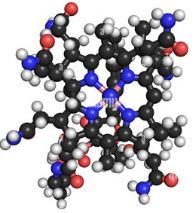Introduction
Plant based diets do not contain meat dairy or fish products
There are good reasons to exclude these products from your diet because of some of their adverse impacts on health.
But they are also good sources of many essential nutrients, so vegans need to ensure that the lost nutrients are now obtained from other sources
Fortunately most of the nutrients can be found in a balanced and varied vegan diet, but a few require a little more care to ensure that they are on the menu.
It is important to note that there are exceptions where this may not be possible or requires knowledge beyond the scope of this article. For instance young children, pregnant and elderly people, those on special diets for health reasons, and countries where alternatives are not available. In which case medical advice should be sought before taking up a vegan diet.
Some of the nutrients requiring attention are the following:
- Vitamin B12
- riboflavin (vitamin B2)
- vitamin D
- Niacin
- Calcium
- Iodine
- Selenium
- Iron
- Zinc
- Omega-3
To start with …
Vitamin B12
Vitamin B12 is essential for the formation of red blood cells, DNA, and the development and functioning of the brain and nervous system. The vitamin is crucial for maintaining overall health and well-being
It cannot be overstated how important it is to have an adequate intake of vitamin B12
Vitamin B12 deficiency can occur in people with low or no consumption of animal foods. Symptoms can include irreversible nerve damage, pernicious anaemia and fatigue. These symptoms will not be immediate and can take several years to appear
Most sources of vitamin B12 are from animal products and therefore not suitable for vegans
Nevertheless there are several ways that vegans can obtain Vitamin B12 and include it as a regular part of their diet. These include dietary supplements, B12 fortified foods such as cereals or plant-based milks, and nutritional yeasts
The estimated average requirement (EAR) is 2.0 μg/day (millionths of a gram per day). The recommended dietary allowance (RDA), also now known as Nutrient Reference Value (NRV) is 2.4 μg/day. The RDA is higher than the EAR in order to cover people with higher than average requirements
Consuming about one microgram of B12 from fortified foods three times a day with a few hours in between will provide an adequate amount [1]
Supplements
There are many vegan supplements available containing B12, usually in combination with other nutrients.
For example, The Vegan Society VEG1 can be taken daily [2]
Fortified Cereals
Typically these contain 100% NRV in 100g of cereal. Sometimes cereals are sweetened and may contain around 6g of sugar so check the sugar content as well as the B12
Fortified Drinks
Many Soya and Oat drinks are fortified with extra vitamins such as B12 and Calcium. It is useful to check the nutrition labels on the side of the packs for information on the amounts that have been added.
Nutritional Yeast
Nutritional yeasts usually come in the form of nutty/cheesy flakes.
A yeast such as Engevita contains 88% NRV in a 5g serving (about two desert spoons)
This can be added to soups, stews, and sauces [4]
Marmite
The infamous Marmite spread can be used to make a tasty toasty or added to sauces. A 4g teaspoon contains 38% RDA [5]
Marmite is made from concentrated yeast extract, which is a by-product from brewing beer
All Marmite products are certified vegan or are in the process of being certified
One 8g serving contains 1.9 µg of B12, equivalent to 76% of an average adult’s daily reference intake
I find 1 teaspoon, weighing in at 4g is usually enough to consume in one go, so that would be just over a third of daily requirements
Note, Marmite also contains salt, but there is a reduce salt variety
Blood Tests
Blood tests can provide evidence of adequate levels of B12 in the body. Simple testing for B12 in the blood can be misleading if there are B12-similar molecules present from foods such as algae. Blood homocysteine testing is more reliable, with levels less than 10 micromol/litre being desirable [1]
Conclusion
It is essential that vegans obtain the recommended amounts of vitamin B12. Failure to do so can lead to serious health problems. Fortunately there are several good sources of B12.
For further information check the Vegan Society website [1] and Plant Based News [3]
[2] https://www.vegansociety.com/shop/veg-1-supplements/veg-1-shop-faqs
[3] https://plantbasednews.org/lifestyle/vitamin-b12-folate-anemia-vegans-supplements/
